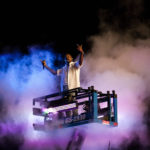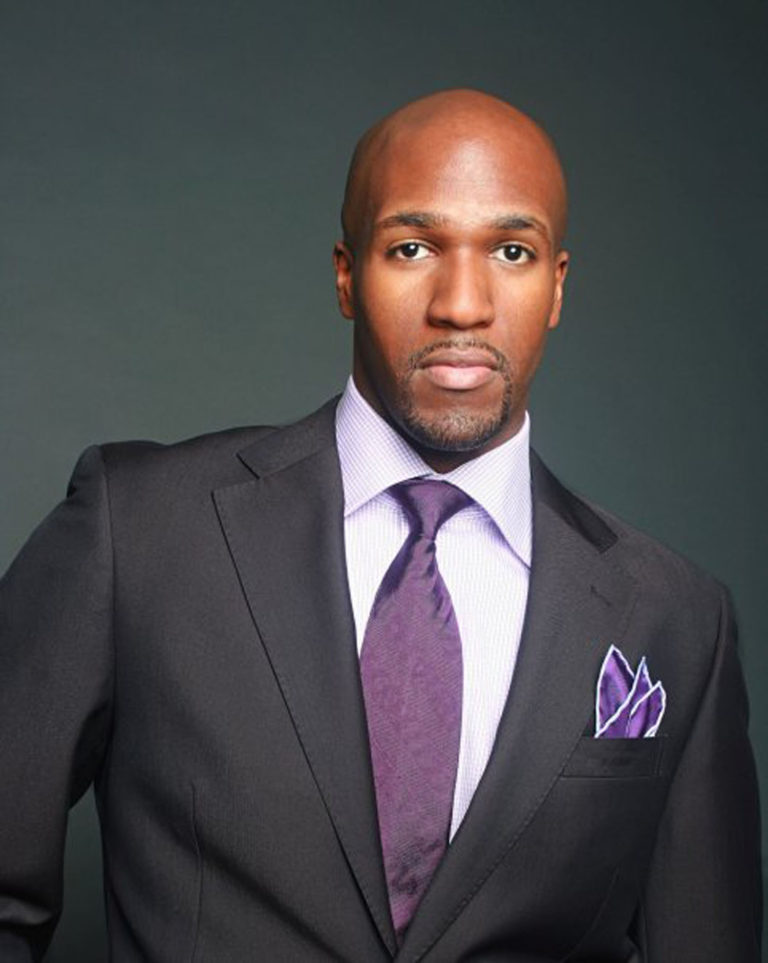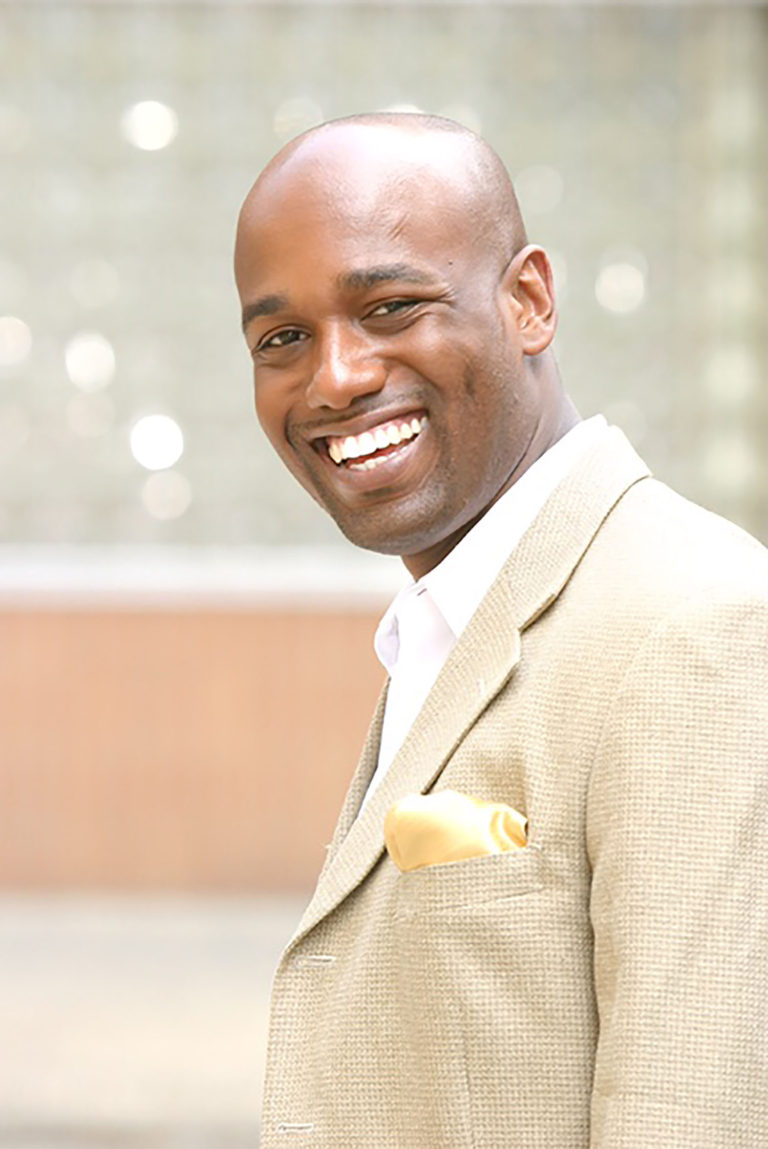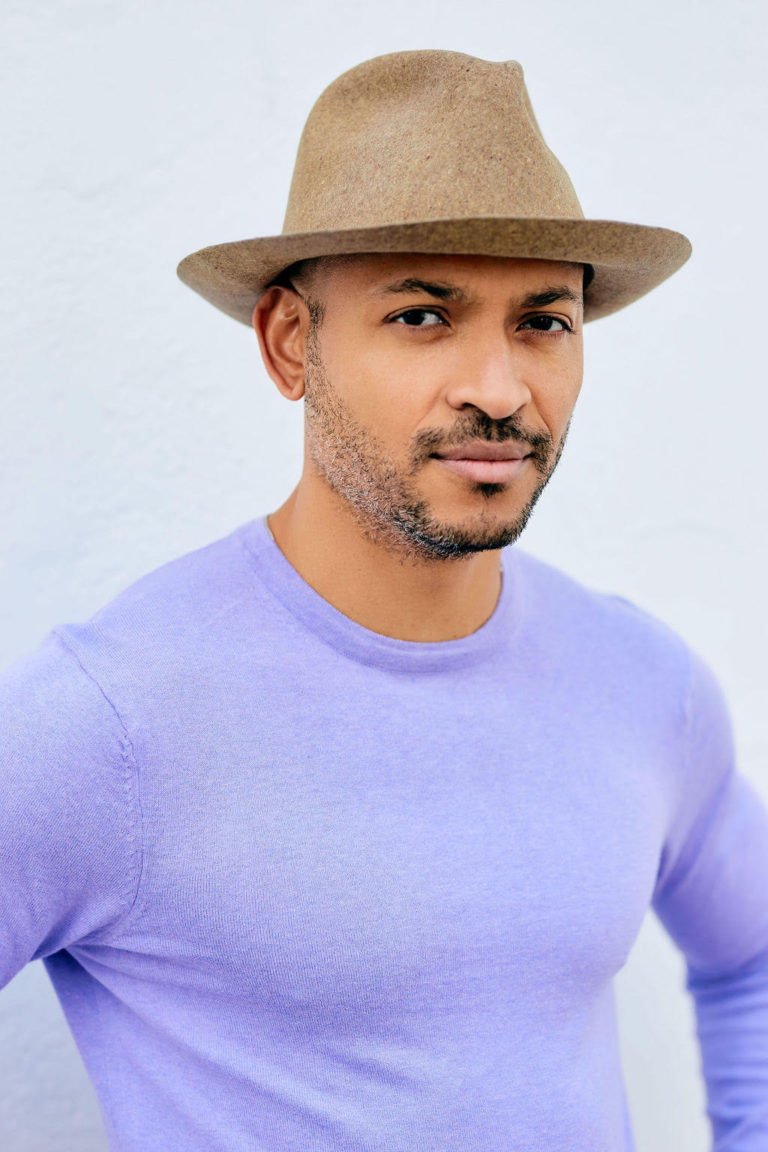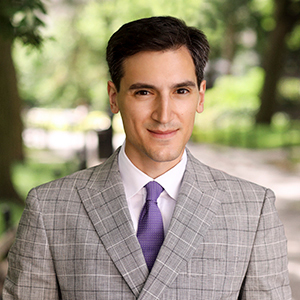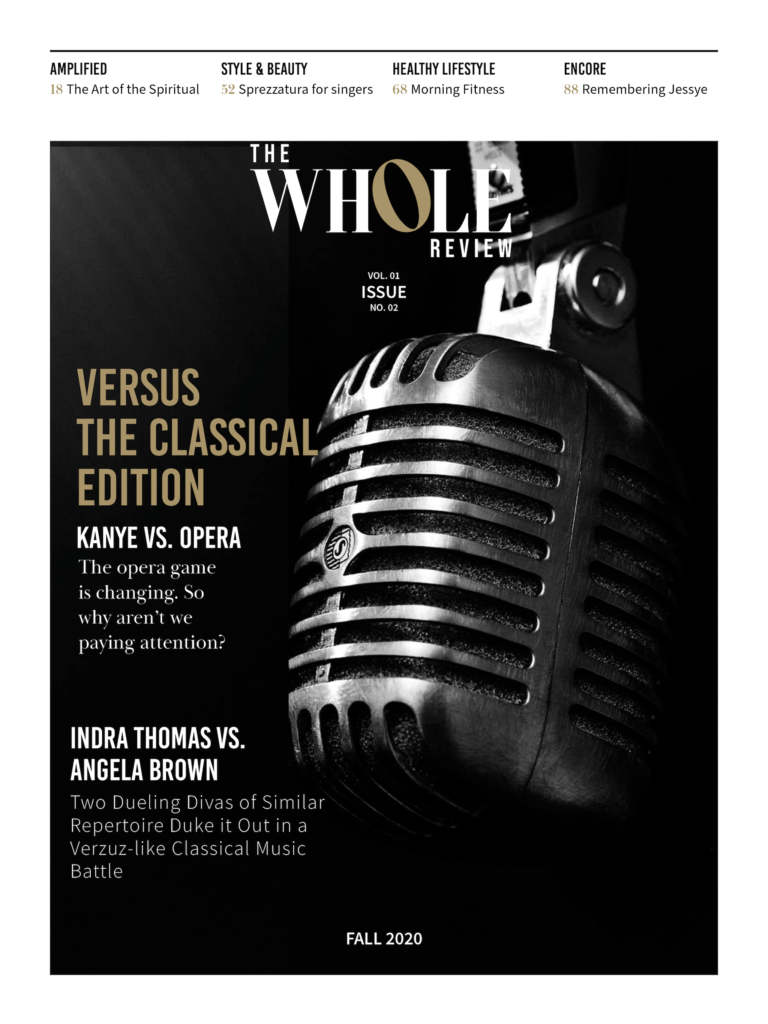The images of Daland Jones on the front cover, inside cover, and the title page of this issue may be triggering. One may look at the front cover and assume that the publication is yet another that’s surfaced to satiate the adrenaline-filled fitness junkies who gobble up muscle magazines. The word fitness is so tainted that its mere mention concerning an opera singer raises red flags and defensiveness.

Body image in the opera industry is a perpetually hot topic. Conversations with singers about weight are no longer taboo or off-limits. Everyone has an opinion, often proffered in the most demeaning and damaging way. We’ve all heard the story of the fat lady who sings. We’ve all seen her caricature posted as fodder — or a drawing card, depending on which side of the opera fence you are. On one side of the fence, there is the staunch idealist for whom the voice supersedes all else. If the woman (or man) singing happens to be fat, well, “So what? If he or she can sing well, that’s all that matters.” On the other side, there are those operagoers who find it impossible to accept a 300-lb. consumptive Violetta.
It is imperative to recognize, though, that there is another body type that falls along the distorted body image spectrum. It is the type rarely spoken of: the tall, gangly skinny kid, possessing a unique and special voice, who wants to sing opera. How many such singers do we talk about? He exists. She exists. They exist. Their stories are there, hiding behind disillusioned eyes and underneath oversized costumes.

That skinny singer walks into the audition room (as all other singers do) and faces a panel of critical adjudicators who are poised to advance or deny his or her career. For the girl, it’s okay to be skinny. The skinnier the better, right? But that poor guy suffers. You’ve seen him. He walks onto the stage with eyes that are a little too big for his face, his dress shirt a little too large for his neck, and his suit baggy around his frame. Surely you have seen him. He has faced rejection and finds gaining a foothold in the operatic profession equally as difficult as do the paunchy tenor and pudgy soprano. Fat, gangly, skinny, pudgy, paunchy. Imagine being on the receiving end of even one of these adjectives. It’s a horrifying thought. But there are countless numbers of singers who endure the barrage of “constructive” criticism year after year. Many of them, however, find a way to persevere and rise above the fray. They go on to make successful careers and lead happy and healthy lives. One such singer is Daland Jones.
Daland was one of those kids who roll out of bed one day and do something particularly amazing — with no previous training. Around age five, he started singing, much to his family’s surprise. What has not been surprising is that he hasn’t stopped, ever since belting out his first notes. Where did that interest in music and singing come from? Actually, it seems he had no choice. His grandmother was a gifted singer. His Uncle William made it to the great white way and appeared in a production of Jerome Kern’s Show Boat. So the writing was on the wall, and Jones’s fate was sealed. He was “going to be just like [his] Uncle Bill.” And like his uncle, he knew that he was destined to be a singer. There was something inside, a fire that just kept growing. His first solo was a sure sign that he had been bitten by the music bug — and a clear sign that this burgeoning divo was primed for the spotlight. His first solo was a made-up nursery song, which he presented one Easter at church in his hometown of Ripley, Mississippi. “I was dressed in my little black suit, and I was ready to sing. I told my great-grandmother that I didn’t know the second part of the song, and that I was only going to sing the chorus. I asked her to relate this to Professor Spight, the pianist, so that he would know how to play it for me. When he veered off and started playing the part of the song I didn’t know, I stopped, looked at him, and said, ‘I no know that part,’ and the church went wild.” Once a divo, always a divo. Instinctively, he knew what he could do and couldn’t do. He did it his way.

Ripley, Mississippi, is a quaint town, just under a two-hour drive from Memphis, TN. There were three schools in town, all of which he attended: Ripley Elementary, Ripley Middle, and Ripley High School. While there weren’t many extracurricular activities for youngsters in those days, he was able to take up trombone and trumpet. An earlier failure to pass a music skills exam prevented him from taking music classes. But he was determined. He cajoled his grandfather into buying him sheet music and music books so that by the time he reached high school, he had learned Bellini’s “Dolente immagine di Fille mia.” One day, he performed the song for his high school choir teacher, Ms. Stubbs, and she was blown away by what she heard — so much so that she went to her colleagues to see who among them could help nurture Jones’s talent. Ms. Stubbs enlisted Dr. Taylor, a colleague and choral director from Northeast Community College, who consistently encouraged and pushed Jones, thrusting him into the spotlight. They got him small gigs in and around town. Says Jones, “My song of choice was the national anthem. If there was an event that required singing, Jones was singing, and singing the national anthem.” One such occasion was the high school’s homecoming game after the 9/11 terror attacks. Ms. Stubbs, in charge of the music for the occasion, asked Jones to sing the anthem because “she didn’t want any runs or riffs in the performance. She wanted it to be sung straightforward.” No one else knew Jones was going to sing. This performance was to be Jones’s big debut in the town of Ripley. Surrounded by his friends, it was hard for him to keep the upcoming performance a secret, but he managed to do so. When the big moment came, he looked over to them and said, “I’ll be right back.” He went to the box and got ready to sing. He sang the anthem, and everyone was blown away. After the performance his stunned friends asked, “How did you do that? How did all that voice come from such a skinny kid?”

That was a seminal moment, one which Jones did not easily brush off. As a matter of fact, he was so body conscious that he often wore three pairs of shorts under his jeans and two sweaters at a time so he could fill out his clothes. However, on the vocal front, he continued to rack up performances and earned the attention of Bobby Martin, then the president of The Peoples Bank. Martin became one of Jones’s most influential sponsors. After a stint at the University of Southern Mississippi, where he studied with Maryann Kyle, he ventured off to the San Francisco Conservatory of Music. There he became a student of César Ulloa and completed his Bachelor of Music degree. Jones was on the rise. That intervening summer he’d also earned a coveted spot at the Aspen Music Festival. While there, the “skinny kid” comment resurfaced. This time, however, it came from an adult who likely should have known better than to weigh in on someone’s size, who blurted out, “You’re a little skinny, and might not look great in your costumes.” This was yet another pivotal moment. After finishing at San Francisco Conservatory and Aspen, he decided to head to the Big Apple, where a lingering interest took center stage. By the time Jones got to New York City, he was already working out, having started at age 13. But he was as determined as ever to fill out. As he puts it, “I hated my chicken legs.” So while in New York he changed his diet, started gaining mass, and began to feel better about his body and body image. In 2019, he competed and won 3rd place in the World Physique Championship competition. Not bad for a skinny kid with a big voice. He has sung a range of roles in operas including Carmen, La Traviata, Susannah, and Die Zauberflöte. He continues to sing but has recently begun to focus more on teaching voice, helping his students navigate their own issues with voice, body image, and body shaming.

Wounds heal, but scars linger. While the “skinny” kid comments Daland Jones endured over the years may have been unpleasant, they never diminished his spirit or robbed him of his desire to sing. In the face of it all, he took a lemon and made lemonade. Perhaps, if those kids and the coach at Aspen hadn’t raised the issue, Jones might have taken a different course altogether. Who knows, maybe he wouldn’t have become interested in fitness, or learned the psychological harm such comments about body image can cause —or begun to inspire a younger generation to study and analyze themselves, learning to create healthy, positive body images. The skinny kid from Ripley, Mississippi with the chicken legs took to the spotlight at age five, and no matter how he’s looked, skinny or buff, he remains in that spotlight, shining brightly.











